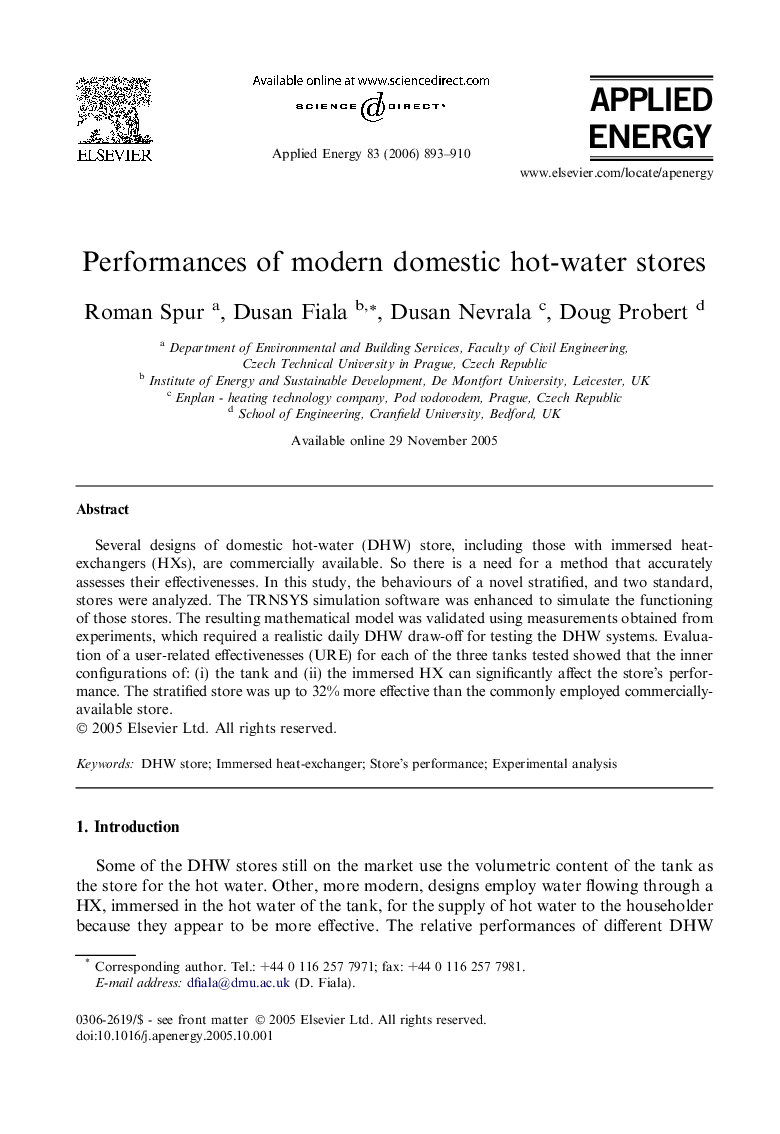| Article ID | Journal | Published Year | Pages | File Type |
|---|---|---|---|---|
| 245414 | Applied Energy | 2006 | 18 Pages |
Several designs of domestic hot-water (DHW) store, including those with immersed heat-exchangers (HXs), are commercially available. So there is a need for a method that accurately assesses their effectivenesses. In this study, the behaviours of a novel stratified, and two standard, stores were analyzed. The TRNSYS simulation software was enhanced to simulate the functioning of those stores. The resulting mathematical model was validated using measurements obtained from experiments, which required a realistic daily DHW draw-off for testing the DHW systems. Evaluation of a user-related effectivenesses (URE) for each of the three tanks tested showed that the inner configurations of: (i) the tank and (ii) the immersed HX can significantly affect the store’s performance. The stratified store was up to 32% more effective than the commonly employed commercially-available store.
